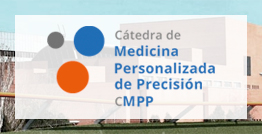Fichas de Oncología Personalizada 2025


Rutinario
- BRCA1 y BRCA2*
- Deficiencia en recombinación homóloga (HRD)**
** somático.

Recomendable actualmente
- NGS**
FRalfa(receptor
de folato alfa)**
Inestabilidad de microsatélites (MSI-H, dMMR)*** - HER2****
** por inmunohistoquímica
*** Mediante IHQ (MLH-1, MSH2, MSH6, PSM2) o estudio genómico (BAT25, BAT26, DS123, D5S346, D17S50)
**** por inmunohistoquímica (3+/2+)

No recomendable actualmente
- PD-1/PDL-1, BARD1, CHECK1, p53, FAM175A, MRE11A, NBN
Recomendada actualmente.- se basa en las recomendaciones actuales de EMEA y FDA.
Referencias:
1. NCCN Guidelines Version 3.2025 Breast, Ovarian, Pancreatic, and Prostate Cancer Genetic Assessment.
2. Newly diagnosed and relapsed epithelial ovarian cancer: ESMO Clinical Practice Guideline for diagnosis, treatment and follow-up. González-Martín, A. et al. Annals of Oncology, Volume 34, Issue 10, 833 - 848.
3. Oaknin A, Guarch R, Barretina P, et al. Recommendations for biomarker testing in epithelial ovarian cancer: a National Consensus Statement by the Spanish Society of Pathology and the Spanish Society of Medical Oncology. Clin Transl Oncol. 2018 Mar;20(3):274-285. doi: 10.1007/s12094-017-1719-x.











